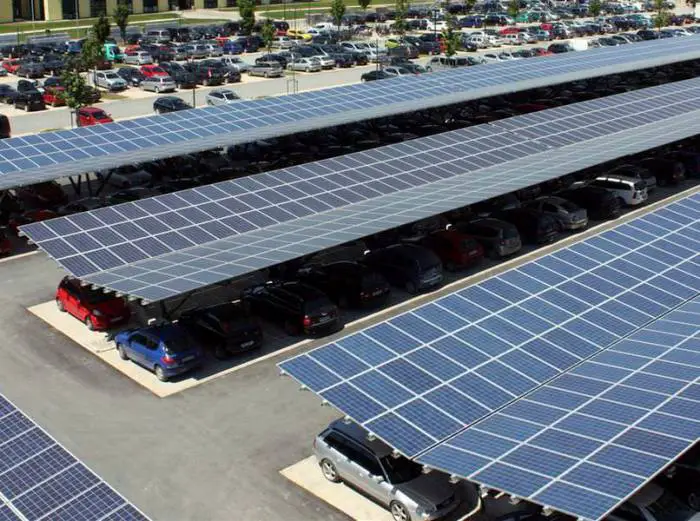Vehicle and asset finance group WesBank and sister company First National Bank (FNB) have announced US$ 4.4m scheme to replace the shade-net carports at its joint offices in Fairland, Johannesburg, with solar-panel carports.
The solar project will optimistically push the 150 000 m2 campus towards a five-star ranking from the Green Building Council of South Africa. Over 5 000 WesBank and FNB personnel are based at the Fairland campus, which has 978 open-air parking spots.
In the coming 11 months the ageing car ports will be substituted by 7 019 photovoltaic panels. As well as giving shade for vehicles, this installation will be able to supply 1 806 kWh of power (at climax) to the building, with a total supply of 3 000 000 kWh expected annually.
Also read:South Africa boasts of first solar airport in Africa
This would be sufficient to power the typical South African home for about 800 years. This project is part of the existing measures taken to reduce the campus electrical consumption.
The carport solar project will be done in two phases, with the first being done by March 2017.The second phase is programmed to be complete by September2017, when the campus will switch on its solar grid – a move that will save the group about R3.9-million in electricity expenses during the initial year of operation.
The solar project will be managed by LTM Energy.“It is our social and environmental responsibility to trim down our carbon footprint wherever possible,” says WesBank CEO Chris de Kock. The campus presently has a 4-star rating from the GBCSA.
Also read:Airports Company South Africa unveils Kimberley Airport solar power plant
Offices are outfitted with population density sensors that switch off lights when no human activity is sensed. A different solar-panel installation is also used to heat water for washroom amenities.
Sun screens on the exterior of the building offer insulation, assisting the effectiveness of the heating and cooling structures. The air-conditioning system is capable of harvesting condensation, allowing for 30 000 l to 60 000 l of water to be amassed for irrigation purposes.
The on-site water pond is used to collect storm water and acts as a safety method to help in avoiding soil erosion on Klein-Jukskei River banks.

